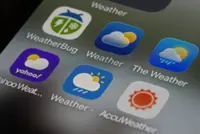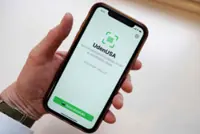Some dating apps offer features for networking while looking for true love (or a fleeting relationship). — AFP Relaxnews
“Networking” – the practice of making new professional acquaintances – takes time and energy. That’s why some in the workforce like to combine business with pleasure by doing it... on dating apps like Tinder, Bumble or Grindr. Will the practice cast a shadow on LinkedIn?
Nearly 30 years after the launch of the world's first dating site, three in 10 US adults say they have used a dating site or app at some time in their life, according to a report by Pew Research Center. But some Internet users go to these digital tools not to find a long-term romantic partner, but to meet new people in a strictly professional context.





